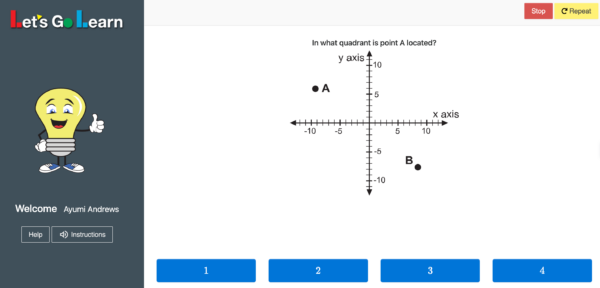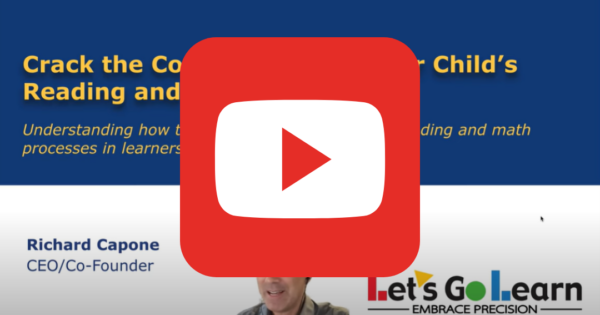Back to School Math
As the summer days fade and the excitement of a new school year builds, students and parents start thinking about what’s ahead. Math is a subject that often brings a mix of excitement and anxiety. For many students, math can be daunting, but with the right preparation and support, we can help them enter the new school year confidently and enthusiastically.
Embracing the Challenges of Back-to-School Math
Transitioning back to school can be a difficult time for students, especially when it comes to math. Many experience what educators call the “summer slide,” where some skills learned during the previous school year begin to fade. This makes the initial weeks of math class particularly challenging.
Math is a subject that builds upon itself year after year. If a student struggled with a concept last year, that difficulty often carries over into the new year, creating a cycle of frustration and anxiety. On top of that, students’ varied learning experiences during the pandemic have widened the gaps in mathematical understanding. Some may have thrived with online resources, while others may have fallen behind due to a lack of access or support.
However, these challenges also present an opportunity. With a proactive approach and the right resources, we can help students overcome the hurdles and develop a stronger foundation in math. By understanding each student’s unique needs and providing tailored support, we can turn challenges into stepping stones for success.
The Importance of a Strong Start in Math
Starting the school year on a strong note in math is crucial for students’ overall academic success. Math skills are fundamental, not just for passing tests or completing homework but for developing problem-solving abilities and critical thinking skills that are essential in everyday life.
When students feel confident in their math abilities, they are more likely to engage in class discussions, tackle challenging problems, and persevere through difficult tasks. This positive engagement can lead to a deeper understanding of mathematical concepts and a greater appreciation for the subject. On the flip side, if students start the year feeling lost or overwhelmed in math, it can affect their confidence and attitude toward other subjects as well.
Preparing for Success in Math
One of the first steps to setting students up for success in back-to-school math is understanding where they currently stand. This means assessing their math skills to identify any gaps in knowledge or areas where they might need extra support. At Let’s Go Learn, we offer a powerful tool called ADAM (Adaptive Diagnostic Assessment of Mathematics). ADAM provides a detailed analysis of a student’s strengths and weaknesses, allowing teachers to create personalized learning plans tailored to each student’s needs.
Once we have a clear picture of each student’s math abilities, it’s important to review and reinforce foundational skills before diving into new material. This helps students build a strong base that they can continue to develop throughout the year. Parents can support this process at home by engaging in fun math activities, such as playing math games or even cooking together and using measurements to practice math in a practical, hands-on way.
Setting goals is another effective strategy for math success. Teachers can work with students to set individual goals for the year and regularly track their progress. This approach not only helps keep students accountable but also allows them to see their growth over time, which can boost their confidence and motivation.
A growth mindset is also crucial when it comes to learning math. Encouraging students to view challenges as opportunities to learn rather than obstacles can help them develop resilience and a positive attitude toward math. Teachers and parents can foster this mindset by praising effort, celebrating mistakes as learning opportunities, and encouraging persistence.
All students learn at their own pace and have unique needs, so it’s important to provide targeted support and resources to help each one succeed. At Let’s Go Learn, we offer personalized math programs that adapt to each student’s learning style and pace. Our adaptive technology ensures that every student receives the support needed to master key concepts and skills.
Regular practice is also crucial to mastering math. Encouraging students to practice math regularly, both in and out of the classroom, helps them become more confident and proficient over time. This can include completing homework assignments, using online math resources, or playing educational math games.

Engaging Parents in Math Education
Parents play a vital role in supporting their children’s math learning, especially during the back-to-school period. Creating a math-friendly environment at home can make a big difference. For example, parents might have math-related books, games, and activities available and encourage a positive attitude toward math.
Communication between parents and teachers is also essential. Regular check-ins can help parents stay informed about their children’s progress in math and provide opportunities to share observations and concerns. This collaborative approach ensures that everyone is on the same page and working toward the same goals.
In addition, parents can help their children see the relevance of math in everyday life. Math is all around us, and there are countless opportunities to practice math skills outside of the classroom. From measuring ingredients while cooking to calculating change while shopping, parents can help their children understand how math applies to the real world.
Encouraging a growth mindset is just as important for parents as it is for teachers. By praising effort, celebrating mistakes, and maintaining a positive attitude toward math, parents can help their children develop resilience and a love for learning.
The Role of Technology in Math Education
In today’s digital age, technology plays an increasingly important role in education, including math instruction. Adaptive learning programs, like those offered by Let’s Go Learn, use technology to provide personalized learning experiences for students. These programs adapt to each student’s pace and learning style, providing targeted support and feedback to help them master key concepts and skills.

Interactive math games can also make learning fun and engaging for students. These programs often use game-like elements, such as points, levels, and rewards, to motivate students and encourage them to practice their math skills.
Online assessments are another valuable tool for evaluating students’ math abilities and identifying areas where they may need additional support. These assessments can be used at the beginning of the school year to establish a baseline and throughout the year to track progress.
Virtual tutoring is another great option for personalized math support. These sessions can be scheduled at convenient times and tailored to each student’s needs, making them a flexible and effective option for help with math.
There are also many digital resources and tools available to assist students in learning math, from video tutorials and interactive simulations to digital manipulatives and math software. These resources can be used in the classroom or at home to supplement traditional instruction and provide additional practice and support.
Addressing Math Anxiety
Math anxiety is a common issue that can significantly impact a student’s performance and attitude toward math. It’s important to recognize the signs of math anxiety and provide the necessary support to help students overcome it.
Math anxiety stems from a variety of factors, including negative experiences with math, lack of confidence, fear of making mistakes, and societal stereotypes about who is “good” at math.
Creating a supportive learning environment is crucial for helping students overcome math anxiety. This includes providing positive reinforcement, encouraging a growth mindset, and creating opportunities for success. Using positive language and framing math challenges as opportunities for growth can also help reduce anxiety and build confidence.

Providing opportunities for success, such as starting with easier problems and gradually increasing difficulty, can help build students’ confidence. Celebrating successes, no matter how small, reinforces positive attitudes toward math and encourages students to keep trying.
Teaching relaxation techniques such as deep breathing, visualization, and mindfulness can also help students manage anxiety and stay calm during math tasks. Regular practice can help make math feel more familiar and manageable.
How Let’s Go Learn and ADAM Can Make a Difference
At Let’s Go Learn, we understand the importance of starting the school year strong in math. Our personalized learning solutions are designed to support students at every level, from those who need extra help to those who are ready for advanced challenges.
Our Adaptive Diagnostic Assessment of Mathematics (ADAM) provides a comprehensive overview of each student’s math abilities, allowing teachers to create targeted learning plans that address individual needs. ADAM’s adaptive technology ensures that each student receives a unique assessment experience tailored to their specific skill set, capturing detailed data across a wide range of math concepts, from basic arithmetic to advanced algebra and geometry.
With this precise diagnostic data, educators can implement differentiated instruction that meets each student’s learning needs, effectively bridging gaps and reinforcing strengths. Our adaptive learning programs offer engaging, interactive lessons that adjust to each student’s pace and provide immediate feedback to help them improve.
Conclusion
Back-to-school math doesn’t have to be a source of stress for students, parents, or teachers. By understanding the challenges, implementing effective strategies, and utilizing the right resources, we can set our students up for a successful school year. With Let’s Go Learn, every student has the opportunity to build confidence, master math skills, and enjoy learning. Let’s make this school year the best one yet!
Whether you’re a teacher looking to support your students, a parent seeking to help your child succeed, or a student eager to start the year strong, Let’s Go Learn is here to help you every step of the way. Together, we can make back-to-school math a positive and rewarding experience for all.



Leave A Comment